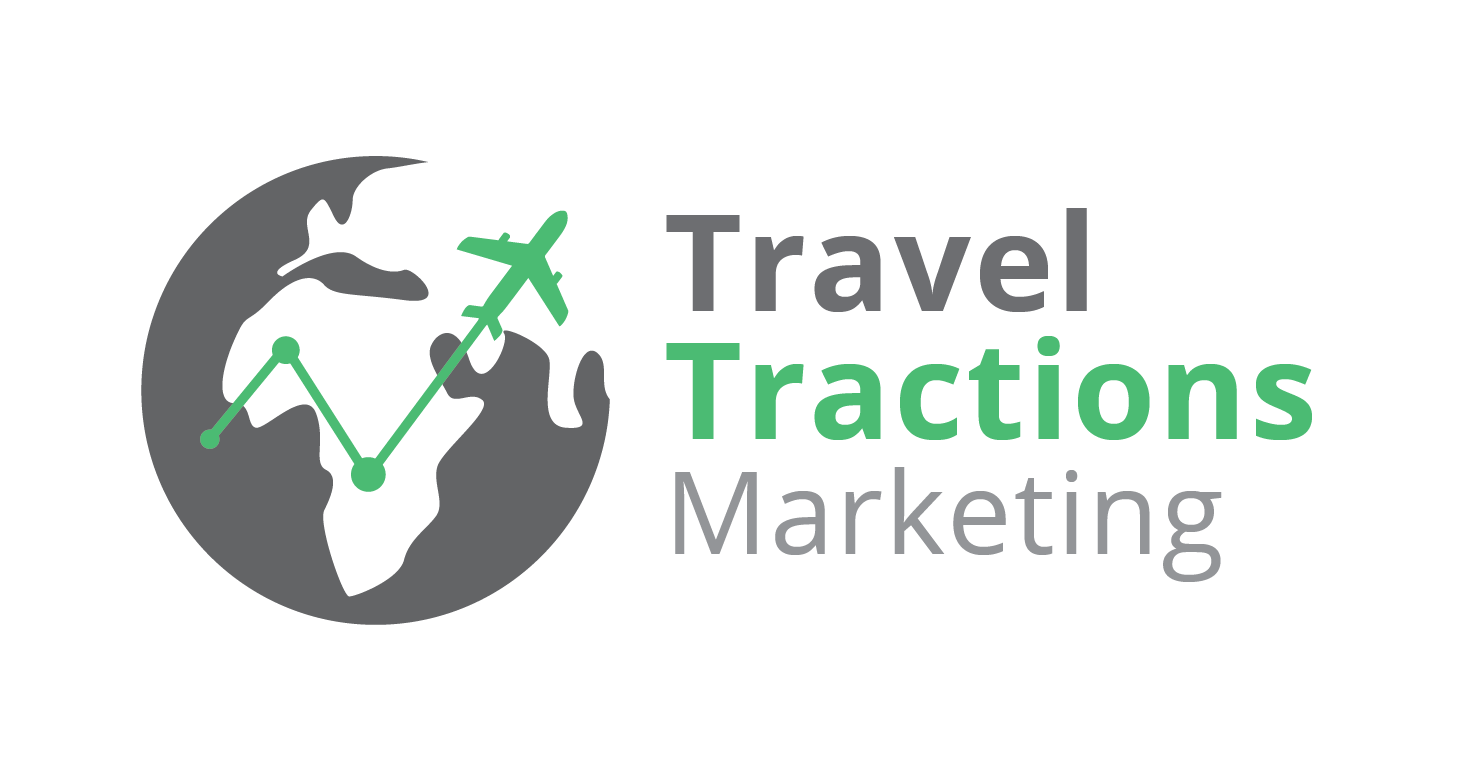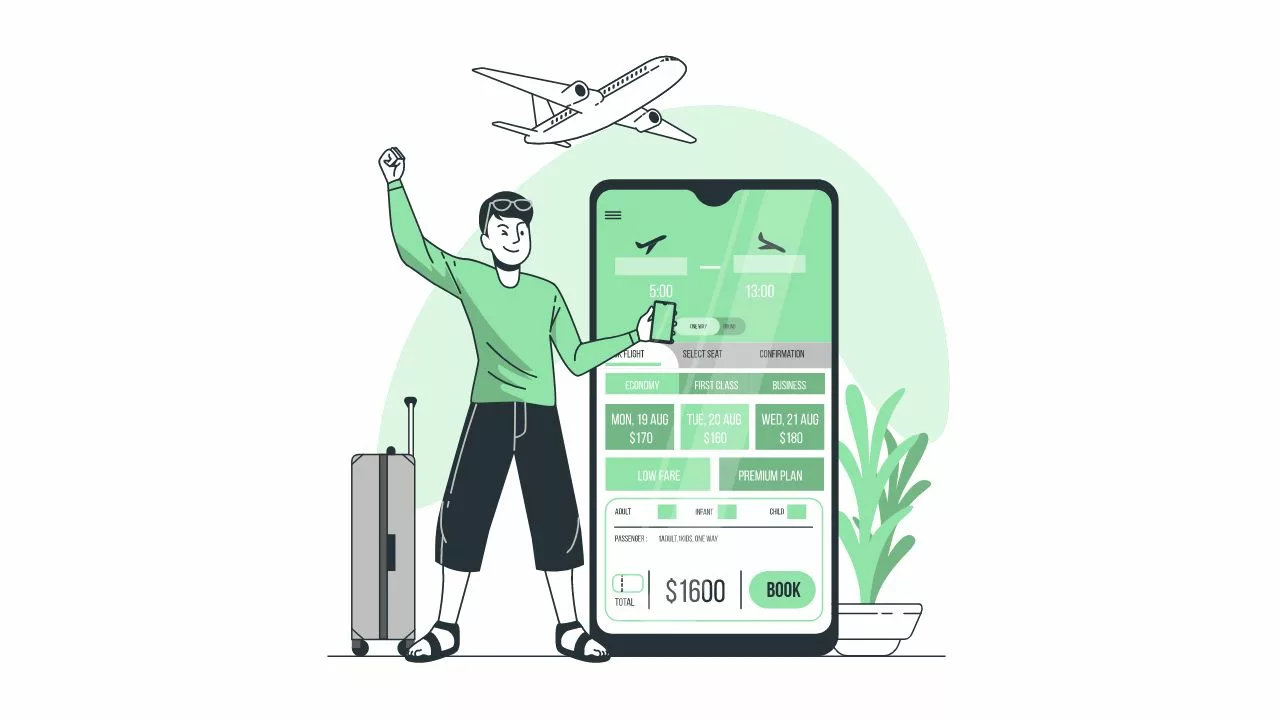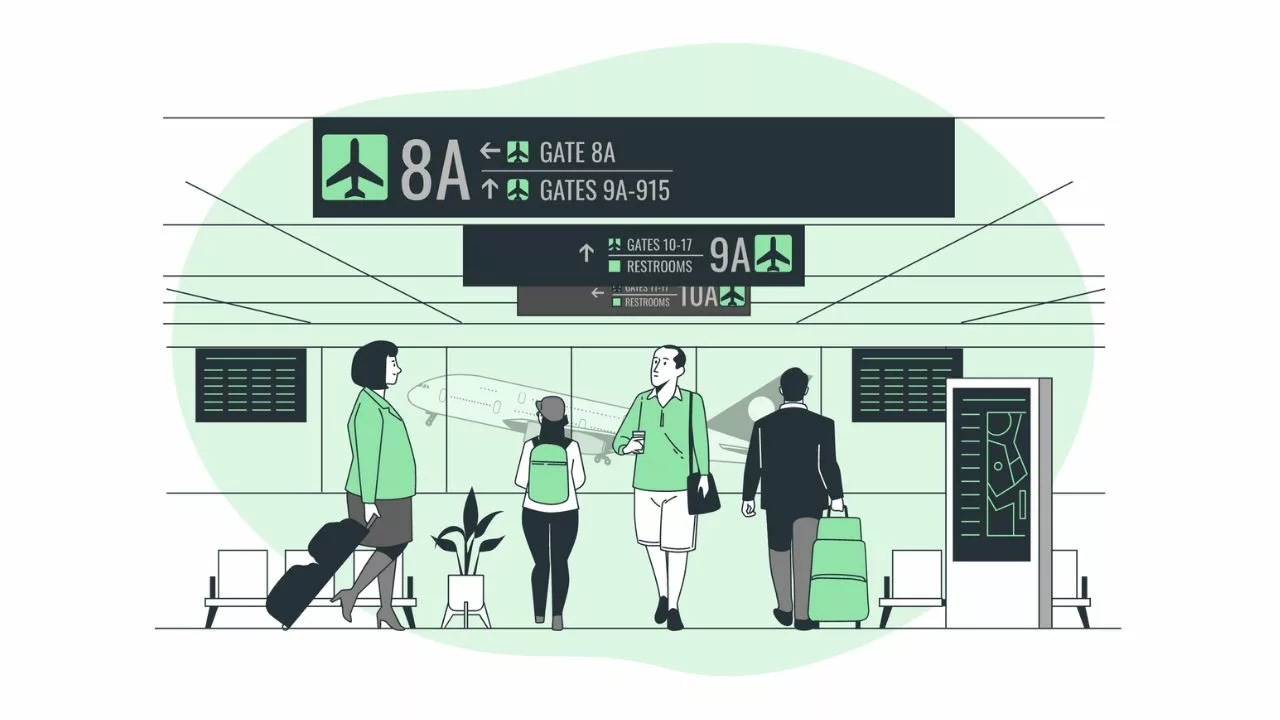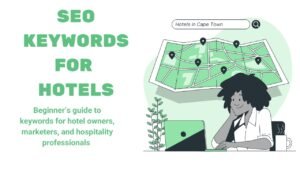
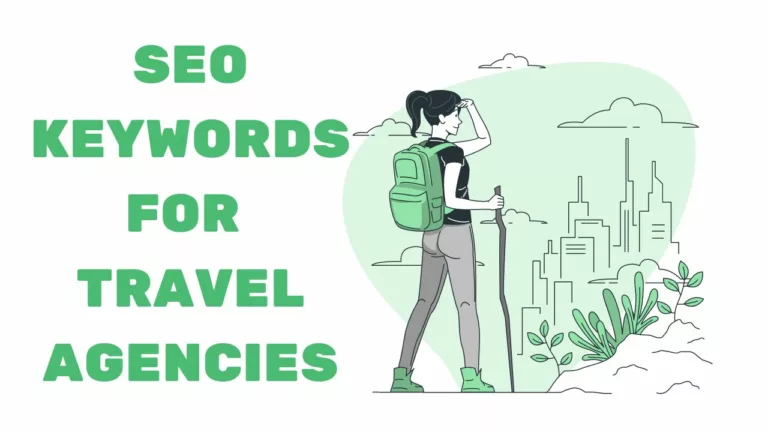
SEO Keywords for Travel Agency | Our Best Travel SEO Keywords
If you have a travel agency up and running online, but you’re not seeing as much traffic to your website as you’d like, we have some good news! A simple strategy implentation using the right keywords and phrases could see you rising to the top of the SERPs and bringing in bucketloads of new users (and clients).
Using search engine optimisation (SEO) to get your website among the top-performing SERPs is one of the best moves you can make. When you’re in the travel industry, having an effective online presence is more important than ever.
While the key to successfully establishing that presence depends on a variety of factors, there’s one crucial element that doesn’t have to cause you sleepless nights. Although each aspect of your travel SEO strategy is equally important, knowing how to identify, integrate, and use travel keywords can be a make-or-break kind of situation.
It is, after all, these keywords that your audience will use to find solutions to their travel problems. You want your travel agency to be easily discoverable with a comprehensive online presence that provides valuable information. To achieve this, you need to know how to make strategic use of keywords.
So, let’s get into everything you need to know about SEO keywords to help your travel agency outrank the competition.
What are Keywords for Travel Agencies?
Keywords are words or phrases (mostly referred to as search terms) that your audience uses when searching online. Every website has keywords, from your local business to the big international sites. Where the distinction comes in is that travel keywords are aimed at the travel industry niche.
But where your average travel website would simply be looking for keywords around destinations (i.e., things to do in Bali), as a travel agency, you want to target more direct keywords.
Luckily there’s a growing trend that can help you identify potential travel keywords. It’s that, at their core, a typical travel keyword is a combination of a niche descriptor and a geographical modifier.
Think about it this way:
Niche descriptor + Geographical modifier = Travel keyword
When you use this formula and apply some practical terminology to it, it could look something like this:
Travel agents + New York = Travel agents in New York
This is not set in stone, though, as every searcher is unique. Each keyword phrase or search term will be distinct, at least up to a point. Some keyword variations do exist where there’s some difference in how they are laid out.
These variations can look like this:
- Airline tickets to New York
- Luxury travel companies in Hawaii
Of course, you can run into search queries that aren’t geographically pinned down. For example:
- Discounted tour packages
- Travel agents near me
- Local travel business
- Travel websites for vacation packages
So how do you ensure that your travel agency lands at your ideal client’s fingertips? The answer lies in perfecting the winning combination of identifying the right keyword and snagging that first position on search engines.
The Importance of Keywords for Your Travel Agency Website
If you’ve been around long enough, you’ll know that SEO for travel agencies is a highly competitive industry.
Since travel marketing and marketing, in general, have moved predominantly online, optimising your content to make an impression on search engines is more under the spotlight than ever. This is thanks to travelers newfound habit of searching for information online long before they make a final decision.
Keywords can be seen as the juice that a search engine operates on. And when it comes to search engines, it’s all about ranking.
Now, for your travel agency website to rank high on Google, for example, you’ll need a standout blend of the best keywords. Combining that with your overarching goal of being Google’s first position (or as close to it as possible) easily translates into more organic traffic.
This is something all of the top online travel agencies have in common.
They aim to get as much traffic to their website as possible. Alongside other marketing elements, such as a PPC campaign and an SEO strategy, they convert a massive chunk of this relevant traffic into bookings and business.
While a beautiful travel agency website design and smooth UX design are important, gaining traffic through high search volume keywords is essential to growing your business. When you use the best keywords, your agency website and campaigns get seen by your ideal customer and audience.
As magical as all this sounds, where do you start your journey to find the best SEO keywords related to your travel agency?
Understanding the Finer Details of Keyword Research
Your first practical step to effective use of keywords for your tour agency is to conduct conducive keyword research. When you tackle this research, you’re putting yourself in the shoes of your target audience, imagining how they would search for your specific product or service.
When it comes to the travel industry and travel agencies in particular, you could discover that “Burma vacation packages” are far more popular than “Myanmar vacation packages”.
You may also find out that the search volume for local hostels is far higher than, let’s say, the search volume for boutique hotels in your area. Using this information, you can play around and update elements like your title tags or tour descriptions on your website, but it also holds the potential to give you more content ideas.
Still a bit lost? We can get you started with a tourism content strategy which presents you with a spreadsheet full of topics and keywords you can use as a stepping stone.
Don’t Forget About Long-Tail
An easy trap to fall into when you go about researching keywords is overlooking long tail keywords. There’s nothing explicitly wrong with sticking to a small set of phrases to kickstart your research, but these should never be your be-all and end-all.
Doing research on keywords is about identifying all the potential phrases (or topics) your audience might search for. You can then use this to map out your site architecture, including what pages to cover, even down to the finer things like specific text to include.
While it’s almost instinctive to be drawn to phrases that have the highest organic search volume, as these are what people search for most, it’s not as simple as that.
Of course, you want pages on your travel company website to target the most searched-for terms. However, these phrases can prove highly competitive. This will make ranking for them, especially close to the first position, quite difficult.
That’s where long tail keywords come into play. Recognising these long-tail phrases is extremely useful if you’re a tour operator with a small or new site.
But what is a long tail keyword?
Generally speaking, the long tail is made up of a variety of different phrases that, when added together, result in a larger volume of traffic. Consider the following:
- The search term “Spain holidays” gets about 22,000 monthly searches.
- There are 22,000 other search terms that include “Spain” relating to travel, such as “Best time to visit Spain”.
Let’s say the phrases in the second scenario only have one search per month. That adds up to the same number of searches the first scenario term has. The thing is, though, the terms in the second scenario often have far more than one search per month.
“Spain holidays” is extremely competitive, making your ranking potential substantially more challenging. This makes opting to rank for one (or more) of the 22,000 long-tail terms far easier as they’re less competitive.
Google has even gone so far as to release data results that show that roughly 15% of the phrases they see daily are entirely new. What that means is the long tail is constantly growing, and if you capture that traffic by pinpointing those keyword phrases, you set yourself up for success.
Consider Topics vs Phrases
If you’re wondering how to target the long tail effectively, the answer is actually a lot simpler than you’d think:
Conduct your research in such a way that you can identify all the different topics relevant to your site.
Begin by finding certain individual phrases and then expand that list to include variations of those topics keeping relevancy in mind. Let’s say you’re starting a travel agency specialising in travel destinations for each month of the year.
Your initial search results show that there’s a massive search volume leaning towards “where to go in” phrases. With some digging, you’ll soon find related keywords that expand your first chosen topic and open up a number of other avenues to head down.
For example:
- “Where to go in April” – 1,000 monthly searches
- “Best places to visit in April” – 700 monthly searches
- “Where to go on vacation in April” – 900 monthly searches
- “April vacation destinations” – 1,200 monthly searches
The minute you begin to delve into long tail keywords, you’ll find a gift that keeps on giving. As a travel company, your job is to keep these keywords closely related to your niche and then build out a comprehensive list of topics that will feed organic traffic to your site while you fill potential content gaps.
What to Consider When Choosing Travel Agency Keywords
Once you have your keywords list completed, the next step in identifying the best keywords for your unique online travel agency is to translate the data you see into actionable topics. While there is an entire range of varying things to consider in determining the most relevant keywords for your travel website, three stand out above the rest.
- Search volume
- Keyword difficulty
- Targeted traffic
Search Volume
Search volume refers to the total number of times a certain keyword is entered into a search engine or used in a search query. This metric is determined on a monthly basis giving you the exact amount a specific term is searched for.
The higher the number relating to search volume is for a certain result, you should consider it one of the right keywords to use for your travel company. Why? Well, with a larger volume, the potential to generate website visitors for that query increase.
Keyword Difficulty
When you attempt to rank for a specific keyword, those search results with high organic traffic and commercial intent often come tied to a more challenging difficulty. Keyword difficulty relates to easy it would be to compete for first-page ranking.
This means your travel marketing strategy and, by extension, content marketing plan need to take into account how competitive a certain keyword is. What makes this an even more critical consideration is that should authoritative websites highly contest your chosen keyword, your ranking potential could suffer.
Targeted Traffic
If you think about relevant traffic for your travel company website, consider targeted traffic the golden standard. These search results provide the user with exactly the information they need.
The moment prospective customers start searching for a keyword or keywords if you can deliver and satisfy their intent, you’ll generate targeted traffic to your website. Your aim is to use popular keywords that do exactly that.
Travel Keyword Research Tools
When you’re on the hunt for a travel keywords list to match your tour agency website, there is an entire collection of SEO tools to help along the way. You can choose from a number of paid tools or a select few free tools that will make finding current and appropriate keyword phrases a lot easier.
These tools take much of the hassle of delving into a search engine to collect keyword data out of your hands. As travel companies, their customers’ needs and wants, and the whole travel industry keeps on changing, these are some options you shouldn’t sleep on.
Google’s Search Box
Kicking things off with what is probably one of the most valuable but easily overlooked free tools out there, Google’s search box does a lot when it comes to finding the best keywords. The well-known box on the search engine’s homepage offers quite a lot of insight for travel SEO keyword ideas.
It’s as simple as starting a search phrase, and Google will take over and present you with a number of related suggestions. These are nothing but the most frequently searched-for keywords that contain the same letters and terms you’ve already begun to search for.
The trick when you’re using the search box is to think of relevant related terms that your travel agency would need to rank for. After you’ve found a select few, evaluate their commercial intent and potential to drive traffic to your website.
Google Search Console
Another fantastic free tool you should be using when plotting out your SEO strategy that’s not overly focused on finding keywords but more on website health and performance is Google Search Console (GSC).
As you launch your travel website, linking it to GSC is essential if you want to stay on track with your overall site health and ranking performance. Where this does specifically help your SEO keyword journey is its “Search Results” report which contains a list of queries for which your website is currently being shown.
Once you have this report, you can choose the most valuable keywords taking into consideration their commercial intent, amount of impressions, and clicks. With all of this data at your fingertips, it becomes easy to optimise your site for these popular keywords later on.
Google Keyword Planner
Although Google Keyword Planner is a feature contained within Google Ads aimed at helping digital marketing strategists find suggestions for paid campaigns, you can use it for SEO purposes easily.
For you to use Keyword Planner, you’ll need a Google Ads account, but once you’ve created yours, you can dive directly into the tool and its features. When considering keywords, you’ll mostly use its “Discover new Keywords” tool.
After adding related keywords in the search box, define your region and language, and you’ll get your results. One of Keyword Planner’s biggest advantages is the keyword suggestions it gives you, as well as the search volume and competition level (difficulty).
Keyword Search Tools
When it comes to fully comprehensive tools to find the best keywords for your travel agency website, there are a few big-name players. These are the best paid-for keyword tools you should consider for your travel company:
- Ahrefs – Offering one of the best tools that help you decide on the best keywords, Ahrefs has numerous features that make dishing up for one of the monthly payment plans worth it. Their Keywords Explorer tool does the trick when you want to find the top-searched travel keywords, while Site Explorer is there to aid you in analysing a competing page for their keywords.
- SEMrush – Using SEMrush, you get access to complete reports that can make finding high volume keywords simple and quick. You begin by deciding on “seed keywords”, which are basically your general keywords, and once you’ve done that, you’ll get a list of related keywords, which you can then filter by volume, country, difficulty, and even search trends.
- Keysearch – Another standout tool you can use to make finding the right keywords for your travel agency website is Keysearch. Offering a free trial as well as a paid version, you’ll get access to metrics ranging from user search trends to search volume and difficulty. Beyond that, Keysearch also provides some deeper insights, such as giving you an estimated range for potential traffic from a keyword.
Learn More: To help you learn about keywords and other SEO skills for your tourism website, we’ve put together a Tourism SEO course.
Improving Your Ranking for Top Travel Keywords
Finally, it always helps to have a little jumping-off point when you’re starting out in the travel keyword-finding landscape. Now depending on your travel business and its specific business model, there will undoubtedly be certain keywords that work better than others.
Take into consideration what kind of business your operating, for example:
- Destination Marketing Organisations – These types of travel businesses will ideally attract users who are looking for a specific destination to match their vacation plans. This is where terms such as “New York travel” or “New York vacation” will deliver the correct travel intent and, in turn, appropriate traffic.
- Travel Agencies – If you’re running a travel agency, your focus will be more on the selling of travel packages. If that’s the case, as a travel agent, you’ll aim for keywords such as “New York travel package” or “New York vacation packages”.
- Tour Operators – As a tour operator, you’re going to focus more heavily on the location + tour pairing. This means your ideal keywords will revolve around “Things to do in New York”, for example, or “New York tours”. On the other hand, if you’re a tour operator focusing on adventure tours, being as specific as possible is the way to go. You’d then aim to use keywords like “parasailing in Phuket”.
Keeping the above in mind, remember that writing content with aimed keywords in mind is one of the best ways to rise in search engine results pages (SERPs). Factor in using these keywords in landing pages, blogs, tour descriptions, website copy, and social media.
Now let’s break down some general keywords you can use to begin with.
High Volume Keywords for Travel Agents
High-volume keywords are a great place to start and are usually related to travel in general. Because these keywords often increase your website visibility, they rank high and sometimes have lower monthly search results. Consider using the following:
- Travel agents near me – 1,900 monthly searches
- Travel agencies near me – 2,400 monthly searches
- Tour operators in – 1,200 monthly searches
- Online travel agencies – 1,000 monthly searches
Country-Based Travel Keywords
Another straightforward strategy is looking for country-based travel keywords. Focus your search on individual countries and expand into a country’s capital city. When you do this, you allow visitors to instantly find the needed information without having to search through hundreds of related prepositions. These are a few good examples:
- Travel to Europe
- United States travel restrictions
- Spain tour operators
- Grand Canyon tour guide
- France travel insurance
- Thailand travel agent
General Keywords for Travel Services
Next up are some general keywords that users might use to find your specific travel business online. Using these keywords, you can incorporate multiple and, in doing so, put your site in a more particular niche:
- Travel agents
- Travel companies
- Tour operator
- Top tour companies
- Luxury travel companies
- Travel consultant near me
Popular Keywords for Travel Agencies
In contrast to the above, there are a number of popular tour and trip varieties that make up some unique travel keywords you can use for your travel agency. These are usually very highly searched:
- Trip packages
- Tour company packages
- Honeymoon tours
- Adventure travel
- International tour packages
- Family tour options
Now You Know About SEO Keywords for Your Travel Agency, What Comes Next?
Knowing how to find the ideal keywords for your travel agency, especially those that score big in the SEO game, is one thing. Using them effectively is another entirely. This is where a content strategy comes into play, and this is simply planning your travel agency website content and using SEO keywords to help along the way.
Keeping in mind that many of the results you’ll see from SEO keywords on your website traffic depends on where you use them, there are many ways to achieve and exceed your expectations.
High Search Volume Keywords and Your Content
Once you’ve got your selection of keywords that fit your unique travel agency and its website, the first step is to use your high search volume keywords where they matter most. Yes, this does mean when writing content for your site, you include them in important content elements such as your headings, but there’s more to it.
Let’s say, for example, you’ve found the following while doing keyword research:
- The keyword phrase “Best travel agency” has 1,600 monthly searches
- Another keyword phrase, “Travel agency in South Africa”, has 1,200 monthly searches
These two phrases both have high search volumes, which show that your targeted audience wants website content that answers one of the queries. Either they want to find the best travel agency, or they’re scouting for any travel agency in South Africa.
The ideal approach logically follows. Combining these two keyword phrases as the title heading of a longform content piece is the magical recipe to success.
Longform Content Using SEO Keywords for Travel Agencies
Okay, you’ve got your content strategy off the ground, and now you want to make the most of every high-performing keyword. This is where you’ll need to determine which of your keywords you can use as a support structure for longform content.
A careful sprinkling of moderate to high search volume keywords throughout a piece of content is how you ensure the most potential traffic gets directed to your website.
What next? Check out our travel content writing services, to find a package that suits your needs.
Final Thoughts on SEO Keywords for Travel Agencies
Travel keywords for SEO don’t need to be more of a mission than absolutely necessary, and once you’ve got a good grip on the basics, there’s little else you need to manage.
Obviously, the best keywords are those that stick to your content marketing and business goals and ones which easily help you fill content gaps.
This makes thorough keyword research an integral part of your entire SEO strategy, but it doesn’t simply end there. Once you have your keywords, you’ll need high-quality content to match.
Now that you know the ins and outs of SEO keywords for your travel agency, the next step is making sure your website is SEO friendly. Schedule a free call today.

